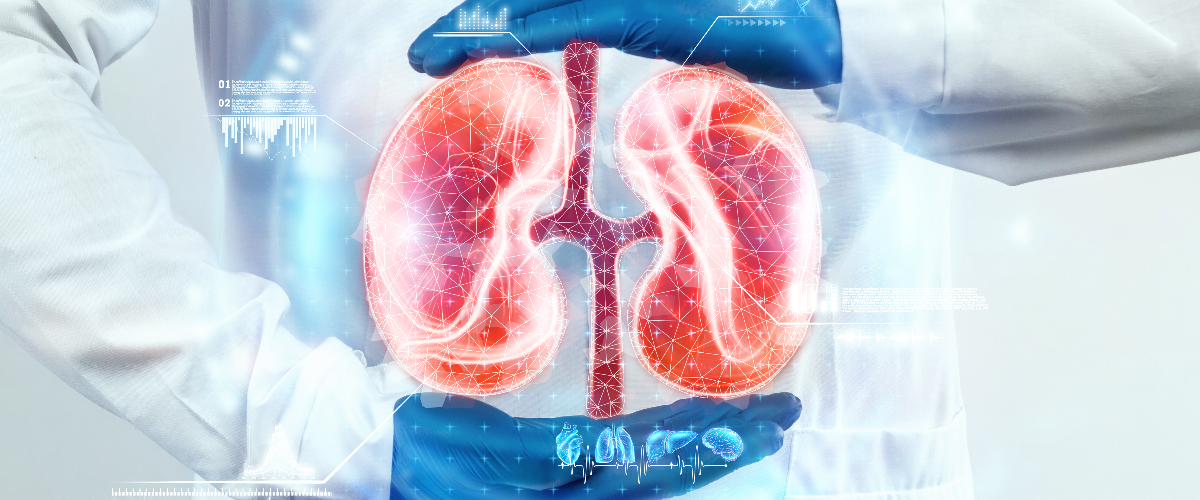syair hk
gopay178, gopay 178, gopay178 slot
gopay178
slot deposit dana
pastebin alternative
pastebin clone script
paste site script
text paste service
online paste tool
mahjong ways 2
link shortener
indobooster
smm panel
smm panel murah
jasa follower instagram
jasa like instagram
jasa view story
jasa auto comment
jasa auto dm
jasa auto like
sabung ayam online
Google Core Update Bikin Website Susah Index? Ini Penyebab dan Cara Mengatasinya!
5 Rahasia Percikan Api Pola Mahjong Ways
Pola Pahatan Scatter Hitam Keramat Mahasiswa Seni Ukir
Bongkar Resep Spin Pedas Mahjong Wins 3
Analisis Korelasi Pola Kemenangan Koi Jejer Tiga
Pengakuan Penjual Kue Manado Tembus Jackpot Scatter Hitam
Sabung Ayam Online
Judi Bola
10 Aplikasi yang Lagi Booming dan Wajib Kamu Coba di 2024!
Fiano Pengusaha Daftar Usaha Menang Scatter Gopay178
Sonia UMKM Bisnis Digital Menang Mahjong Ways 2
Luis Kios Kecil Jackpot Sweet Bonanza
Andrea Mahasiswa Riset Usaha Spin Lucky Neko
Wawan Ekspor Kopi Menang Gates of Olympus
Clara IRT Daftar RNT Saldo Naik Gopay178
Rafael PKL Modal Balik Cuan Mahjong Wins 3
Miguel Bengkel Maxwin Starlight Princess
Sinta Kuliner OVO Bonus Wild Bandito
Jorge Anak Muda Komunitas Bisnis Sugar Rush
Wild Bandito Gacor Surabaya 72.450.000
Wild Bandito vs Gates of Olympus Jogja
Pedagang Angkringan Solo Uji Wild Bandito
Wild Bandito Balik Modal Semarang 31.600.000
Pemuda Bekasi Review Wild Bandito
Review Wild Bandito Penjual Es Bali
Wild Bandito Favorit Mahasiswa Bandung
IRT Tasikmalaya Main Wild Bandito 45.800.000
Wild Bandito Arcade 90an Makassar
Viral Wild Bandito Pemuda Medan
Tips Rahasia Wild Bandito Surabaya 67.250.000
Pola Malam Wild Bandito TikTok Jogja
Review Wild Bandito Pemuda Bandung
Rahasia Pola Spin Wild Bandito Lampung
Wild Bandito Pola Malam Stabil Medan 48.700.000
Review Pola Wild Bandito Bekasi
Wild Bandito Anti Boncos Soto Kudus 72.300.000
Rahasia Scatter Wild Bandito Malang
Tips Trik Wild Bandito Makassar 20 Spin
Pola Malam Rahasia Wild Bandito Jogja
Strategi Rahasia Starlight Princess di Gopay178 Bikin Pemuda Bandung Heboh
Ahmad Sahroni Bongkar Pola Jitu Gates of Olympus Versi Gopay178 Viral!
Fenomena Scatter Hitam Sweet Bonanza, Pemula Gopay178 Cuan Honda Vario
Update Terbaru! Rizal Chalid Ungkap RTP Wild Bandito Gacor di Gopay178
Step Sederhana Spin Malam Starlight Princess Bikin Kaget Netizen
Admin Emanuel Ebenezer Bagikan Rahasia Scatter Hitam Gates Olympus
Fakta Mengejutkan! Reza Chalid Uraikan Pola Jitu Sweet Bonanza
Panduan Langkah Cerdas Bermain Wild Bandito Biar Balik Modal
Fakta Baru! Update RTP Sugar Rush Jadi Fenomena Heboh di Medsos
Strategi Spin Malam Starlight Princess Disebut Tren Gen Z Viral
Ahmad Sahroni Bagikan Cara Spin Sugar Rush yang Lagi Viral di Medsos
Rizal Chalid Ungkap Pola Jitu Gates of Olympus, Fakta Baru Terungkap
Admin Emanuel Ebenezer Sebar Update RTP Wild Bandito Bikin Heboh
Reza Chalid Bocorkan Fakta Mengejutkan di Starlight Princess Malam Ini
Fenomena Scatter Hitam Sweet Bonanza Jadi Perbincangan Komunitas Viral
Panduan Spin Malam Gates of Olympus Versi Sahroni Bikin Cuan Kilat
Update RTP Aztec Gems Disebut Makin Gila, Pemain Pemula Kaget
Strategi Scatter Hitam Sugar Rush Ala Rizal Chalid yang Menggemparkan
Pemuda Medan Heboh! Wild Bandito Disebut Bisa Cairkan Honda Vario
Tren Gen Z Eksplorasi Starlight Princess Jadi Fenomena Baru di Forum
Strategi Spin Malam Wild Bandito Disebut Bikin Heboh Pemain Medan
Fakta Baru! Update RTP Sugar Rush Terungkap, Pemula Bisa Balik Modal
Ahmad Sahroni Bongkar Update Pola Gates of Olympus yang Viral di TikTok
Admin Emanuel Ebenezer Bagikan Cara Unik Main Sweet Bonanza Gacor
Rizal Chalid Sebut Starlight Princess Jadi Fenomena Baru di Gen Z
Reza Chalid Bongkar Spin Aztec Gems, Fakta Rahasia Tersembunyi Viral
Fenomena Scatter Hitam Sugar Rush Disebut Strategi Terdepan Komunitas
Panduan Langkah Praktis Bermain Wild Bandito untuk Pemula Indonesia
Update Terbaru Starlight Princess Bikin Heboh, Fakta Mengejutkan!
Tren Gen Z Eksplorasi Gates of Olympus Jadi Sorotan di Forum Viral
Ahmad Sahroni Sebar Strategi Scatter Hitam Sweet Bonanza Bikin Heboh
Rizal Chalid Bagikan Update RTP Gates of Olympus yang Viral di Forum
Admin Emanuel Ebenezer Bongkar Spin Malam Wild Bandito Cuan Kilat
Fakta Mengejutkan! Reza Chalid Sebut Pola Jitu Sugar Rush Terungkap
Fenomena Scatter Starlight Princess Jadi Sorotan Pemuda Jakarta Viral
Panduan Step Sederhana Spin Aztec Gems Bikin Balik Modal Honda Vario
Strategi Wild Bandito Ala Gen Z Disebut Jadi Fenomena Baru di Medsos
Update RTP Starlight Princess Malam Ini Mengguncang Komunitas Viral
Pemuda Bekasi Heboh! Gates of Olympus Bikin Cuan Rp120 Juta dalam Sehari
Fakta Baru Sweet Bonanza Disebut Lebih Gacor dari Permainan Lain Viral
Mahjong Ways 2 angkat Rina Surabaya WD
Free Spin Mahjong Ways 2
Pola Mahjong Ways 2 bikin Dedi Bandung WD
Heboh Mahjong Ways 2 jam pagi
Rahasia Mahjong Ways 2 Satgasjitu
Satgasjitu bocorkan mahjong scatter hitam
mahjong scatter hitam bantu Dedi Bandung
Viral Mahjong Scatter Hitam 3x
Bima Makassar panen 20 Free Spin mahjong scatter hitam
Rahasia Mahjong Scatter Hitam versi Satgasjitu
Wow Mahjong Wins 3 angkat Andi
Satgasjitu ungkap rahasia Mahjong Wins 3
Mahjong Wins 3 bikin Dedi Medan maxwin
Rahasia jam hoki Mahjong Wins 3
Bima pecah jackpot Rp160 Juta lewat Mahjong Wins 3
Terbukti Mahjong Wins 3 bawa Yuni Semarang WD
Update pola Mahjong Wins 3
Fauzan Makassar menang besar di Mahjong Wins 3
Bocoran Mahjong Wins 3 versi Satgasjitu
Jadi sorotan Mahjong Wins 3
wow scatter hitam hadir 3 kali
viral scatter hitam bikin modal receh
update pola scatter hitam hari ini
terbukti scatter hitam mahjong ways 2 bawa jackpot
strategi rahasia saat scatter hitam turun
scatter hitam tiba tiba turun
rahasia scatter hitam malam ini
heboh scatter hitam turun di awal spin
fakta mengejutkan scatter hitam
cuan deras scatter hitam beruntun
kisah andi kediri scatter hitam mahjong wins 3
tips budi bogor mahjong ways 2 satgasjitu
citra malang scatter hitam mahjong wins 3
strategi doni karawang mahjong ways 2
eka klaten pola scatter hitam mahjong wins 3
fani pontianak mahjong ways 2 satgasjitu
galih bandung scatter hitam mahjong wins 3
hendra medan rtp gacor mahjong ways 2
intan solo pola spin mahjong wins 3
joko sleman scatter hitam mahjong ways 2
kiki makassar free spin mahjong wins 3
lina samarinda saldo kecil mahjong ways 2
maman cirebon jam hoki scatter hitam mahjong wins 3
nia tasikmalaya menang mahjong ways 2
oki palu scatter hitam mahjong wins 3
putri kupang modal kecil mahjong ways 2
rian surabaya spin terakhir scatter hitam mahjong wins 3
santi bengkulu pola turbo mahjong ways 2
toni banjarmasin maxwin scatter hitam mahjong wins 3
vina medan jam hoki mahjong ways 2
guru makassar temukan jam hoki di satgasjitu mahjong wins
ibu malang senyum scatter hitam mahjong wins 3
mahasiswa bali jackpot rp137 juta mahjong ways 2
mahasiswi kupang heboh scatter hitam
mahjong ways 2 di satgasjitu bikin pemuda aceh jackpot
mahjong wins 3 scatter hitam antar penjahit solo wd
montir cianjur auto maxwin rp141 juta lewat scatter hitam
nelayan bitung heboh satgasjitu catat scatter hitam
pedagang medan auto wd rp148 juta berkat scatter hitam
pemuda batam maxwin scatter hitam mahjong wins 3
pemuda kalimantan menang rp136 juta scatter hitam mahjong ways 2
pola turbo mahjong ways 2 di satgasjitu antar penjual bakso
rtp gacor mahjong ways 2 angkat buruh sawit riau
rtp tinggi mahjong ways 2 di satgasjitu bawa barista makassar
satgasjitu guncang scatter hitam mahjong wins 3 buat martabak
satgasjitu jadi saksi supir bandung wd
scatter hitam mahjong ways 2 bikin kasir jogja wd
subuh beruntung buruh pontianak jackpot rp144 juta scatter hitam
warga surabaya heboh scatter hitam mahjong wins
wow petani garut satgasjitu raup rp140 juta dari scatter hitam
wow scatter hitam bikin rina surabaya maxwin
viral scatter hitam turun 3x
terbukti scatter hitam angkat siti
rahasia scatter hitam bima pekanbaru
heboh scatter hitam jam pagi
wow mahjong wins angkat rina surabaya
viral pemuda medan pecah maxwin mahjong wins
terbukti rahasia mahjong wins bikin dedi
heboh 20 free spin mahjong wins
rahasia jam hoki mahjong wins

- HOME
- CORPORATE
- PREGNANT SCHOOL
- HEALTH TOURISM
- AREAS OF INTEREST
- OUR UNITS
- MEDICAL DEVICES
- OUR DOCTORS
- ONLINE SERVICES
- CONTACT
- TÜRKÇE
- Güncelleme(Update): 15/11/2024

Nephrology
Nephrology Department specializes in kidney diseases, hypertension, and fluid and electrolyte imbalances.
Outpatient Services
Here, the diagnosis and treatment of kidney diseases are provided. Additionally, preventive medicine is applied to individuals at risk of developing kidney disease, such as those with diabetes or hypertension. Patients diagnosed with end-stage kidney failure are evaluated for kidney transplantation, and supportive therapies and monitoring services are offered to end-stage kidney disease patients.
Intensive Care and Inpatient Service
Supportive treatments are provided to necessary patients, especially those who develop acute kidney failure in intensive care. Treatments such as hemodialysis, hemofiltration, hemodiafiltration, and continuous venovenous hemofiltration are applied in this department. In necessary cases, treatments like hemoperfusion and plasmapheresis are also used. Peritoneal dialysis service is also offered in this department.
Dialysis Treatment
It is a treatment method that can be applied in emergency or chronic situations. Acute dialysis may involve hemodialysis, peritoneal dialysis, or slow, continuous methods. In chronic dialysis treatment, depending on the patient's remaining kidney functions and protein intake through diet, hemodialysis or peritoneal dialysis is performed for 2-3 times a week, lasting 4-6 hours each session.
Chronic Peritoneal Dialysis (CAPD)
This method is a simple treatment where the patient's peritoneal cavity is filled with dialysate, and after a few hours of equilibrium, it is replaced with a fresh one. Usually performed four times a day, this procedure can be carried out by the patients outside the hospital and its success is dependent on the level of education.
Contact Us
Corporate
Patient Guide
Service Hours
Monday – Friday ------08:00-17:00
Saturday -----------------08:00-13:00
Sunday -------------------Emergency Service

